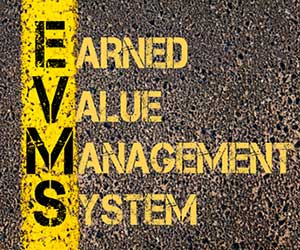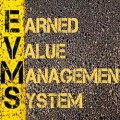
The To-Complete Performance Index represents the efficiency level, specifically the CPI (Cost Performance Index) that will make the project finish on time. It can be a powerful indicator because it is generally easy to ascertain if your people will be as productive as the indicator tells you.
There are two ways to calculate the TCPI:
- To achieve the original budget
If the goal is to achieve the original project budget, that is, the overrun or underrun has not resulted in a change to the project schedule and/or budget, the following formula applies:TCPI = (BAC – EV) / (BAC – AC) - To achieve the EAC
If the goal is to achieve the project’s EAC (Estimate at Completion), use this formula. This formula applies if the project’s budget has changed, and the original budget (BAC, Budget at Completion) no longer applies. If additional funds covering the cost overrun have been requested and approved by the project sponsor, the EAC becomes the new ultimate target of the project, and this scenario applies.TCPI = (BAC – EV) / (EAC – AC)
Interpretation
A TCPI of 1.20 means the project team must be 20% more efficient than the initial project schedule assumption.
- If the TCPI is below 1.0, the project is below its budget
- If the TCPI is equal to 1.0, the project is on budget
- If the TCPI is above 1.0, the project is above its budget
The closer the project is to completion the higher the CPI that will be necessary to complete on budget. It can become extreme near the end.
Also, if the project has already spent more than its budget the TCPI will be negative.
This indicator tends to be a bigger red flag than other indicators. For example, if your people need to be twice as efficient as their previous performance, it tends to make you take notice that corrective action needs to be taken.
Sample PMP Exam Questions
- A tire factory is looking to expand its production. The initial project budget was $200,000. The project is 75% complete and has spent a total of $165,000. What is the TCPI?
EV = 75% x $200,000 = $150,000.
AC = $165,000.
BAC = $200,000.
TCPI = (BAC – EV) / (BAC – AC)
= ($200,000 – $150,000) / ($200,000 – $165,000)
= 1.43
Therefore, the project must be 43% more efficient than the schedule assumption to finish on budget. - The project manager obtains a budget increase to $220,000. What efficiency level does the project team need to achieve the new project budget?
EV = $150,000.
AC = $165,000.
BAC = $200,000.
TCPI = (BAC – EV) / (EAC – AC)
= ($200,000 – $150,000) / ($220,000 – $165,000)
= 0.91
Therefore, the project team needs only a 91% efficient rate to finish at the new budget.
TCPI Example
TCPI is the last column in the table of Earned Value metrics, and generally the last to be calculated.
We will assume the project budget has not been revised and the goal is still the original project budget (formula #1, above).
TCPI = (BAC – EV) / (BAC – AC)
TCPI = ($10,000 – $2,000) / ($10,000 – $4,500) = 1.45.
| ID | Name | Start | End | BAC | PV | EV | AC | SV | SPI | CV | CPI | ETC | EAC | VAC | TCPI |
|---|---|---|---|---|---|---|---|---|---|---|---|---|---|---|---|
| 100 | Produce Report | Apr. 1 | Apr. 10 | $10,000 | $3,000 | $2,000 | $4,500 | -$1,000 | 0.67 | -$2,500 | 0.44 | $18,182 | $12,500 | -$2,500 | 1.45 |
Conclusions
This project team must be 45% more efficient than they have been to finish on budget. A seemingly difficult task.
The project manager must decide if the project team can accomplish the rest of the project with this level of efficiency, or whether a cost overrun is inevitable and should be pursued.
TCPI completes the earned value calculations. The last step in the earned value management system is reporting the results to the various stakeholders.
For more information, please visit our Earned Value Tutorial.






